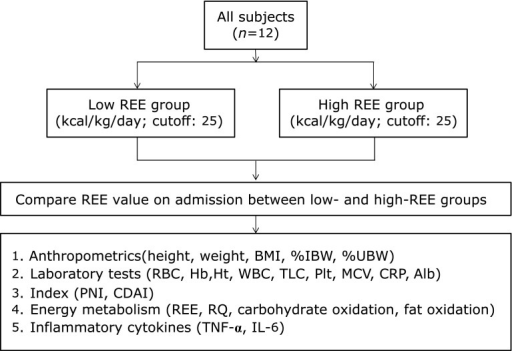


Moreover, the sample had not hemolysis or lipemia.

One tube with K 3EDTA was drawn by home health services in non-fasting state and a CBC was run, but the results were not corrected in fact, the mismatch became even more distinct (Hb: 104 g/L and HCT: 0.08 L/L) (Sample 2 in Table 1). Thus, to rule out problems with blood sample drawing, the physician and phlebotomist were informed to redraw the tube with K 3EDTA. When the tube with K 3EDTA was centrifuged at 500 x g for 3 minutes, slight hemolysis appeared. Patient had a history of cerebrovascular diseases and rheumatoid arthritis. Blood samples have been transferred from patient’s home to our laboratory after routine examination by a family physician. Patient had WBC 7.1 x 10 9/L and PLT count 327 x 10 9/L however, hemoglobin (Hb: 105 g/L) and hematocrit (HCT: 0.214 L/L) results were discordant, as shown in Table 1 (Sample 1). To our knowledge, the present study is also a unique case report of spurious CBC results associated with cold agglutinins using the ABX Pentra 80 (Horiba Medical, Montpellier, France) hematology analyzer.Īn anticoagulated blood sample (K 3EDTA, 2 mL, Golden Vac-Tube, GongDong Medical Technology Co., Zhejiang, China) drawn from a 70-year old female patient was analyzed during routine laboratory examination. Only few cases have recently drawn attention to the importance of pre-analytical affect of cold agglutinins on CBC results (2,3). Laboratory findings were also not sufficiently available in these studies. There are several case studies associated with cold agglutinins however, these studies have been generally presented in a clinical perspective. In the present case, we evaluated cold agglutinins as a reason for the mismatch between hematocrit and hemoglobin values. These situations commonly include the agglutination in the presence of ethylenediamine tetra-acetic acid (EDTA), insufficiently lysed RBC, erythroblast, platelet aggregates, cryoglobulins, agglutinins, lipids, hemolysis, and elevated WBC counts (1). Red blood cell (RBC) counts, hemoglobin (Hb), mean cell volume (MCV), white blood cell (WBC) count and platelet (PLT) count are parameters measured by hematology analyzers that are affected by spurious values in several situations. There are a number of pre-analytical and analytical factors that cause false CBC results. The CBC is applied to diagnose anemia, to identify acute and chronic illness, bleeding tendencies and white blood cell disorders by both general practitioners and other medical specialties. The use of automated hematology analyzers to examine complete blood count (CBC) is very common. After an incubation of the sample at 37☌ for 2 hours, reversibility of agglutination was observed.Ĭonclusion: We conclude that cold agglutinins may interfere with the analysis of erythrocyte and erythrocyte-related parameters (HCT, MCV, MCH and MCHC) however, Hb, leukocyte and platelet counts are not affected. In this sample, the titration of the cold agglutinin was determined and found to be positive at 1:64 dilution ratios. Redrawn sample without hemolysis or lipemia was analyzed but the mismatch became even more distinct (Hb: 104 g/L and HCT: 0.08 L/L). Results: First blood sample was slightly hemolysed. Hemolysis, lipemia and cold agglutinin were evaluated as possible reasons for the mismatch between hematocrit and hemoglobin values. During routine laboratory examination, the patient had normal leukocyte and platelet counts however, the hemoglobin (Hb: 105 g/L) and hematocrit (HCT: 0.214 L/L) results were discordant. Materials and methods: 70-year old female patient had a history of cerebrovascular diseases and rheumatoid arthritis. The present case identifies cold agglutinins as the cause for the mismatch between hematocrit and hemoglobin values. Introduction: There are a number of pre-analytical and analytical factors, which cause false results in the complete blood count.


 0 kommentar(er)
0 kommentar(er)
